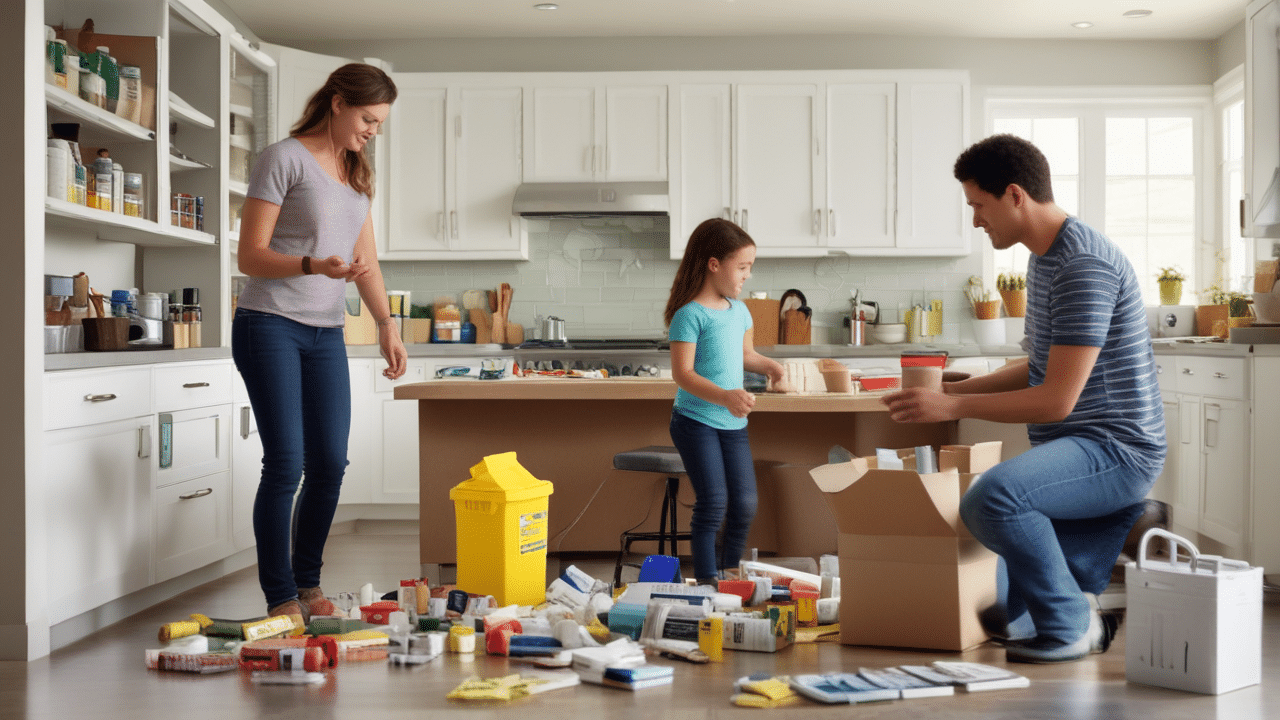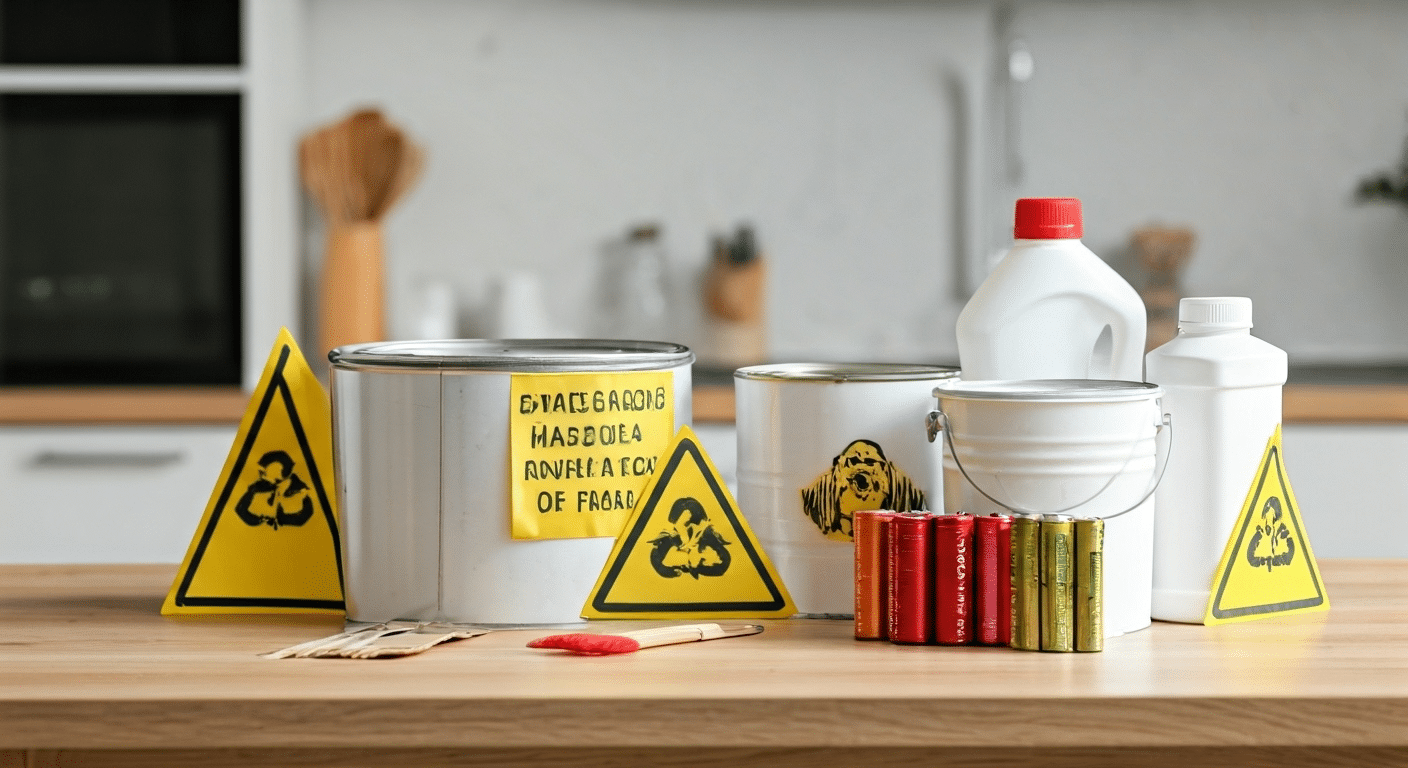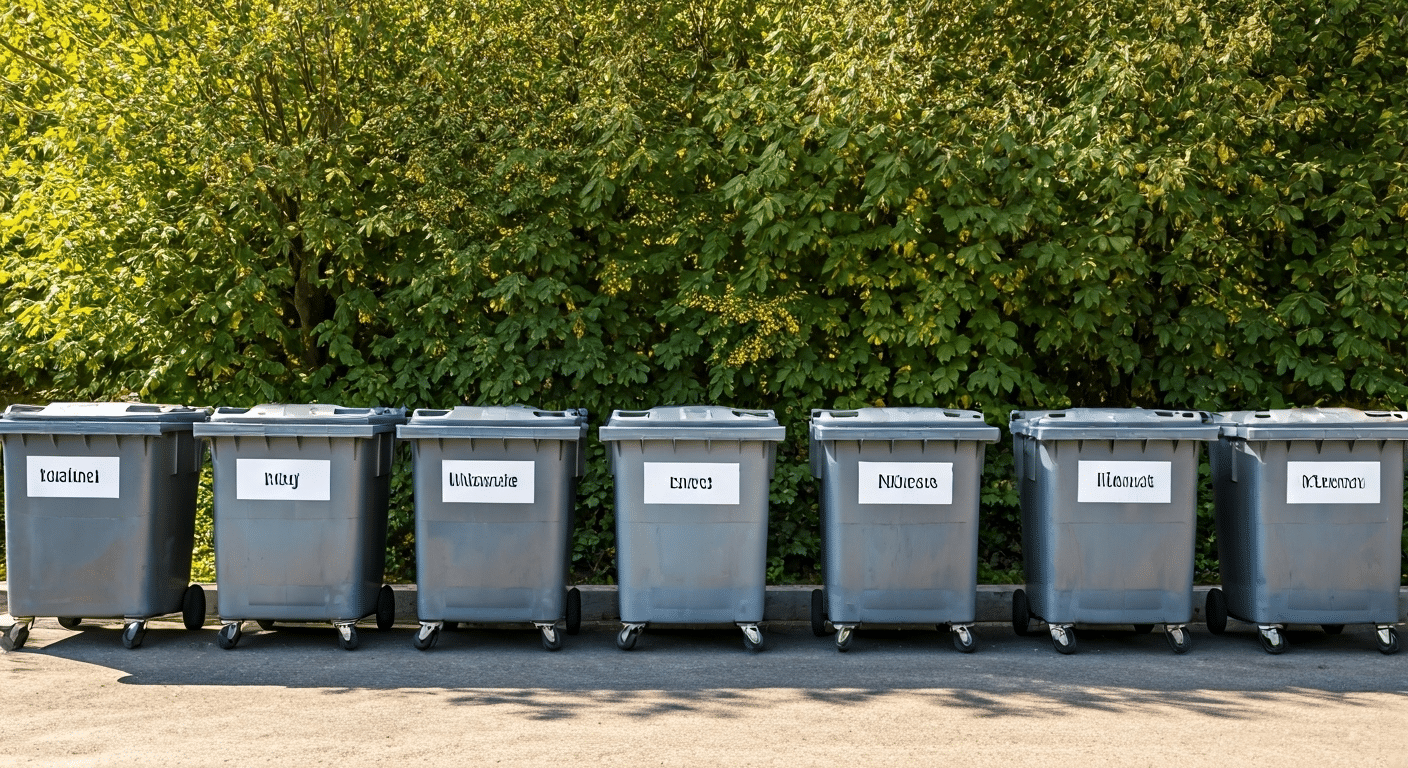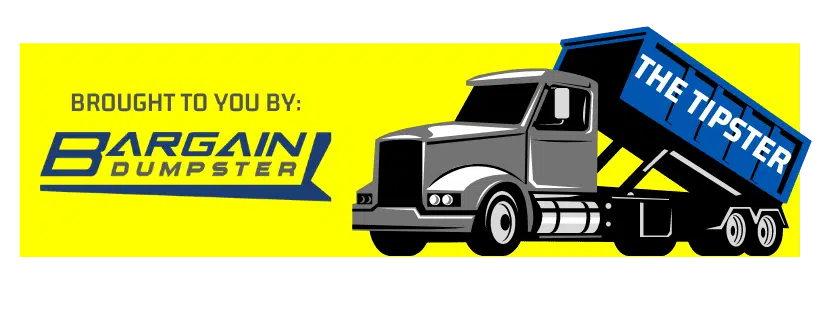
Key Highlights
- Household hazardous waste includes things like fluorescent bulbs and transmission fluid. These items must not go in with regular trash because it is not safe.
- If hazardous waste disposal is not done right, it can damage wastewater treatment systems. It can also hurt human health and the environment.
- Recycling hazardous materials, such as mercury and thermometers, is a great way to save resources.
- Community programs, hhw collection sites, and drop-off centers help with the safe process of getting rid of hazardous waste.
- A good way to stop waste before it starts is to buy hazardous products in a smart way and keep them stored safely.
Now, let’s talk about why proper disposal is so important. There are many reasons that show the need for good disposal methods. A right way to get rid of things helps protect people, all the animals, and the land we all use. When you take the time for proper disposal, you keep your place and the world cleaner and safer for everyone.
Introduction
Over time, every home will have some hazardous waste. You could have empty aerosol cans, asbestos, fluorescent bulbs, or other household products that are not safe. These kinds of hazardous materials are not good for human health or the environment if you do not take care when you get rid of them. A lot of hazardous waste has toxic chemicals in it. These can leak from landfills and mix with groundwater. Throwing this waste in your regular trash is not enough. This is why hazardous waste disposal matters for all of us. When you use safe disposal for these items, you help keep your family, your pets, and the planet safe.
Let’s take a look at the kinds of hazardous waste that people keep in their homes.
There are many things people use every day in the house that count as hazardous waste. These can be things like paint, old batteries, or cleaning supplies. A lot of people do not know that these items can be bad for us and the earth if they are not thrown out the right way. Some may keep these things in a garage, under the sink, or in a storage room without knowing the risk.
It is good to know what hazardous waste is in your home so you can take care of it. If you are not sure which items in your house are hazardous waste, you can read the label or look for warnings like “danger” or “poison.” If you have these in your home, plan to use them up or find a safe way to get rid of them. They should not just be thrown in the trash or poured down the drain. This helps keep you and everyone else safe.
Identifying Common Household Hazardous Wastes

It can be tough to know what is household hazardous waste in your home. A lot of household chemicals, strong cleaners, and items with things like mercury or asbestos can be there. You need to be careful with these. Even simple items you use every day, like paint thinners, pesticides, and car fluids, are all types of hazardous waste. You should not put them in your regular trash. These things are just too toxic and can harm people or the environment.
Since hazardous waste can cause problems for people and for the world, the EPA says we need to know about these risks. The EPA also tells us to use the right ways for disposal and to recycle when we handle these things. A good way to manage your waste starts when you know what things in your home are hazardous waste. It is good for all of us to pay attention and do these things in the right way.
What qualifies as hazardous waste in your home?
Hazardous waste has different things in it that you should not throw in the regular trash. Some household products, like drain cleaners, transmission fluid, and pesticides, have chemicals that can be bad for people and the environment. If you do not use the right way to get rid of this hazardous waste, it may make the drinking water dirty. It can also make the air bad because the fumes get out because of these chemicals.
In some places, you can put things like empty aerosol cans in with regular trash. But in many other places, you cannot do this. The rules about hazardous waste and hazardous waste disposal are not always the same everywhere. This is why you need to ask about disposal rules in your area. Proper disposal helps keep sanitation workers and other people safe.
Motor oil is a good example of hazardous waste. You should take it to hhw collection centers for recycling. Do not throw it away with your other household waste. If people all use the right way to get rid of hazardous materials, these things can be dealt with in a safe way. This will help lower risks to people and the world around us from household waste.
Examples of everyday items that are hazardous
Many things we use in the home each day can be hazardous waste. You may not know it, but some things should not go in regular trash. They can be bad for human health if we do not handle them the right way. The first thing to do is to know what these items are. This helps us take care of them in the right way.
- Fluorescent light bulbs: These have mercury inside them. If one breaks, mercury can get out. It can go into water or soil.
- Transmission fluid & brake fluid: These are used in cars and are toxic. They will catch fire easily. They also can react in a bad way.
- Aerosol cans: A lot of aerosol cans are not empty. If there is anything left in them, they can burst. They also can send harmful chemicals out.
- Spent batteries: Some batteries have things like lead, cadmium, or lithium in them. These can hurt the environment if they get out.
- Cleaning products: Some cleaning products have strong chemicals in them. These can burn you. They can also send out bad fumes.
You have to use special steps for the disposal of these items. This will keep people safe. It also helps protect the environment.
Proper Disposal Methods for Household Hazardous Waste

Taking care of hazardous waste the right way is important. It keeps the environment healthy and keeps people in the community safe. First, you have to know what hhw is. Then, learn about the best way to do hazardous waste disposal for each item you have. You can use recycling, go to special drop-off centers, or get help from professionals. The way you do disposal often depends on where you live.
On-site toxic waste treatment centers and traveling Wastemobiles make it easy to take care of disposal. When you follow your local rules and epa guidelines, you help lower present hazards. You also play a part in resource conservation because you make sure things get used in the right way.
Guidelines for safe recycling of hazardous materials
Taking safe steps while you recycle hazardous materials helps keep the environment safe. You need to sort out items like mercury thermometers and fluorescent bulbs. Put these in their own places for recycling. Many stores, like Home Depot, offer free recycling for fluorescent bulbs. Always follow good recycling habits for thermometers with mercury and other hazardous materials.
Sanitation workers need clear labels to know what they are handling when it comes to disposal. This helps bring down the risk of trouble from hazardous materials. You should keep any hazardous materials in their first boxes or bottles. Make sure these are tight so they will not leak, and that the labels are easy to read. This step is important. It keeps both the workers and everyone in the community safe from harm.
Local hhw collection sites and recycling centers often give you good instructions on how to get rid of each type of item. For example, they tell you what to do with things like automotive fluids or waste batteries. If you need more help with recycling, you can also check the EPA’s website. They have other guides there to help you.
Step-by-step disposal processes
Effective hazardous waste disposal needs you to do some clear steps. These steps help make sure the items go the right way. This helps stop hazardous waste from getting into solid waste or septic tanks by accident. Proper disposal keeps people and the area safe.
|
Hazardous Waste Item |
Disposal Process |
|---|---|
|
Fluorescent Light Bulbs |
You can find free recycling for these at many stores. |
|
Cooking Oil |
You can put this in compost or donate it to biofuel places. |
|
Brake Fluid |
Take it to auto parts stores and use the right bins there. |
|
Aerosol Cans |
If allowed where you live, empty the can. Then recycle it or put it in with regular trash. |
|
Syringes |
Put them in a container that can’t be poked through. Drop off at collection points. |
You must always keep hazardous waste separate from your regular trash. This is important because it helps stop things from getting mixed up during disposal. Before you throw anything away, check the label. The EPA recycling directory can help you know where you can take your items. This way, recycling is safe for us and the people who work with it.
Local Resources for Hazardous Waste Disposal
Community programs offer many ways to get rid of hazardous waste, or hhw, all over the country. You can find secure websites that give sensitive information, like local pick-up times from your government. So, there are many choices in your area for hazardous waste disposal.
ACTenviro, some pharmacies, and waste groups in each county work together for hazardous waste. They offer hazardous waste drop choices that help the environment and handle medical waste. Easy-to-reach hhw centers make it simple for people to get rid of things the right way every time.
Finding your nearest disposal facility
If you do not know what to do with hazardous waste, there are some good options. The Earth911 database can help you with this. You just need to enter your zip code into the tool. It will show you places nearby where you can take your hhw.
You can also check out Green Citizen. It has a green directory that lets you choose how far from you to search, such as up to 15 miles. It shows you details for each site, not just if they collect items. If you want to know more about the services or the law, you can contact ACTenviro for help.
How you handle disposal is important. If you use approved hhw disposal centers that only deal with waste, you help people and lower the risk for everyone. This also supports big efforts in the nation to take care of hazardous waste the right way.
Community programs and disposal events
All over the United States, local councils work to set up systems to always collect hhw. These systems are not the same as other ways to clean up. They offer a lot of good things. When you check in your city, you can find events and programs from charities that help share news. These programs help keep it real and help stop accidents, harm, and wasted time. A big plus is that now it is possible to collect more hhw than in the past.
Prevention Tips for Minimizing Household Hazardous Waste
Making good choices when you shop can help lower the hazardous waste that comes into your home. Always try to pick eco-friendly products that do not have harmful chemicals. Do not buy things like solvents and pesticides. When you do this, you keep these hazardous products out of your house. Check your household chemicals often. This helps you use what you have, so you do not get more than you need. Keep all hazardous products in places kids or pets cannot reach. This way, you help keep everyone safe. Talk with your family about how these items can be dangerous. Teaching others at your house helps keep everyone safe and also helps with resource conservation.
Sustainable purchasing decisions to reduce waste
Picking products that help lower household hazardous waste is a good thing for people and the planet. You should look for items that have eco-friendly certifications. Most of the time, these products have less hazardous chemicals in them. Buying things in bulk can be a smart choice. It helps cut down on packaging waste that ends up in hazardous waste disposal.
Try to buy products that last a long time. When things last longer, you don’t have to get new ones as often. Try not to pick disposable items. Choosing refillable containers is better. When you pick these types of products, it is good for resource conservation.
Making these choices keeps people safer from the dangers of hazardous waste disposal. It also helps us use fewer hazardous materials. This is good for the earth, now and in the future.
Safe storage tips to avoid disposal needs
Storing hazardous materials in the right way is very important to stop leaks and keep contamination from happening. You should always use the original containers with clear labels for these things. This helps you not mix up hazardous waste and keeps people safe. Keep household chemicals like solvents and pesticides in a cool, dry place. Make sure to keep them away from anything hot. Store these items where children and pets cannot reach them. This will help protect human health. Check your storage spots now and then for old or expired products. If you find them, throw them out the right way. Doing this makes your home safer and stops hazardous waste from piling up.
Conclusion
It is important to know how household hazardous waste can affect people and the environment. If you make good choices when you shop and use correct disposal methods, you help lower the risks from hazardous materials. Taking your hazardous waste to a local hazardous waste drop site and thinking about resource conservation ideas can help keep your community clean. These habits help us all have a healthier future. When we all do these things, we move toward better and safer hazardous waste management.
Frequently Asked Questions
What types of materials are considered household hazardous waste?
Household hazardous waste includes things like paints, solvents, pesticides, batteries, and some cleaning products. If you do not get rid of these items the correct way, they can harm people and the environment. It is important to know what is seen as hazardous waste. This way, you can make sure to use safe disposal methods that will help protect human health.
Where can I find local facilities to safely dispose of household hazardous waste?
To find a spot near you for household hazardous waste disposal, start by checking your city or county’s waste management website. They usually list drop-off events or show where you can take hazardous waste. You can also visit websites like Earth911 to look for recycling places near your zip code. This way, it’s easy for people to get safe recycling and disposal for their hazardous waste.
Are there specific guidelines for recycling items like batteries and paint?
Yes, there are clear rules about recycling and proper disposal for batteries and paint. Your area may have its own way to handle this. You should talk to your local waste group to see the right way to make proper disposal happen. This can help you follow safety rules. It is also good for the planet. When we use these ideas, we can keep harm away from the earth. This also makes sure we recycle items like batteries and paint the right way.

